Coronavirus Melbourne: Ethnic clusters due to cultural confusion
Victorian ethnic leaders suspect confusion over the lifting of restrictions contributed to a rise in contaminations.
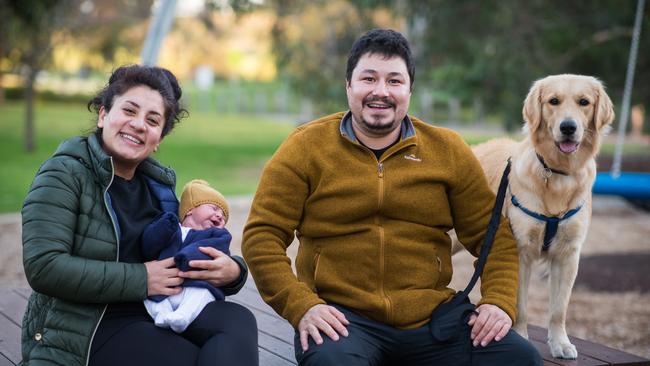
Victorian ethnic community leaders suspect confusion over the lifting of coronavirus restrictions led to a drop in compliance with social-distancing rules and contributed to a rise in contaminations.
Ethnic Communities Council of Victoria chairman Eddie Micallef attributed the rise in virus contaminations in Melbourne’s outer suburbs to confusing messaging and general community complacency.
But the problems in some of the communities in the coronavirus areas were also reflected in the broader Australian population, he said.
However, there were pockets of the outer suburbs where language was an issue, with hundreds of thousands of people from migrant backgrounds.
“I think there was a little bit of complacency,” Mr Micallef told The Australian. “I think the message started to get lost.”
The Andrews government was gravely concerned on Tuesday night about the progress of the virus, as signs of panic-buying of toilet paper and other basics re-emerged in some areas.
Victoria registered 11 local government areas with at least four coronavirus cases each, up from only seven two days ago.
The worst local government hot spots of Brimbank and Hume, in Melbourne’s west and north, increased to 15 and 14 active cases respectively on Tuesday.
Victoria’s average daily rate of new cases per million head of population has almost caught up to Italy, where case numbers have been falling.
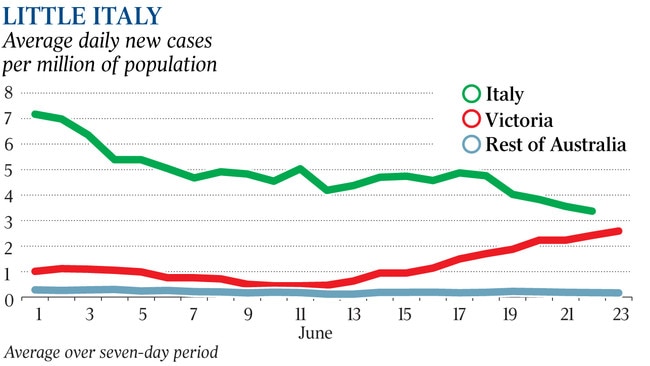
Premier Daniel Andrews has blamed a large part of the spike in coronavirus cases on families that had failed to follow directions, leading to large gatherings where social distancing was ignored.
He also said people had deliberately ignored basic health information designed to slow the virus, with some people knowingly rejecting the advice and mingling in the broader community when it was unsafe.
“There are powers to deal with those people,” Mr Andrews said. “Wilful conduct needs to be dealt with, and I wouldn’t rule that out.
“But at the same time, they’re not decisions that I make, and I don’t think that you’d ever want to get to a situation where the Premier was directing police on who they should fine.’’
The rise in infections in the state has led premiers in some other states to examine whether to strengthen their border controls, and sparked a plea by NSW Premier Gladys Berejiklian for Victorians not to travel to NSW during the school holidays.
Victoria’s Health Department released details on Tuesday of the state’s new cases, confirming they comprised two cases linked to clusters, three identified through routine testing, one in a returned overseas traveller in hotel quarantine, and 11 under investigation.
A case in a Coles distribution centre worker who attended work while infectious is linked to a family outbreak based in Keilor Downs in the Brimbank hotspot.
Mr Andrews said community transmission was a significant issue. “There will be some significant community transmission within those numbers,” he said on Tuesday. “This is still with us. This is not over.”
Mr Andrews confirmed two more Victorian schools had been shut down due to COVID-19 cases.
Both are in local government areas that have been declared coronavirus hot spots. The schools are Brunswick East Primary School in the inner northern Melbourne local government area of Moreland, and Keilor Views Primary School in the outer northwestern LGA of Brimbank.
So far, 675,000 COVID-19 tests have been processed in Victoria since the pandemic began, including 8149 for which results were confirmed on Monday, reflecting testing levels on Sunday.
Mr Andrews said he expected between 16,000 and 18,000 tests were done on Monday, with numbers to be confirmed on Tuesday.
Islamic Council of Victoria vice-president Adel Salman told The Australian that the issues in families had been exacerbated by the general relaxation of lockdown measures.
“I think that creates confusion,” Mr Salman said.
The six core local government areas affected by the surge in coronavirus cases contain significant numbers of people who speak English as a second language.
Languages include Arabic, Punjabi, Vietnamese and Chinese and health officials are desperately trying to get the messages through to these groups.
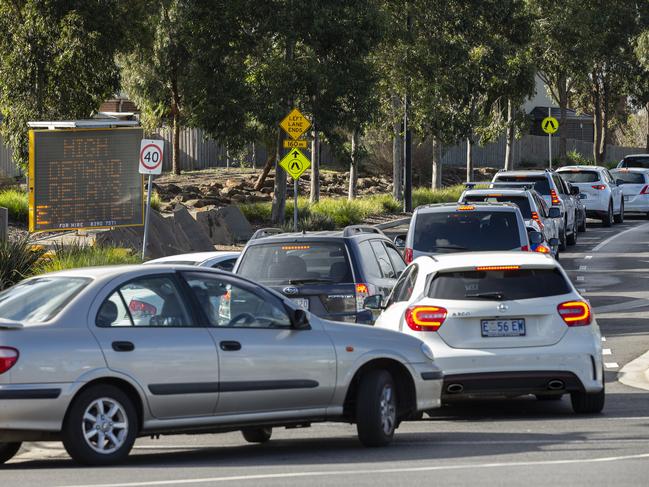
Turkish-Australian couple Tahsin and Inci Mazali live in Melbourne’s northwest, a virus danger zone, and are understandably worried about the spike in COVID-19 cases. But they are not surprised, given that many people breached guidelines for traditional reasons, both cultural and religious. “I believe some people didn’t do (social distancing) correctly but others just ignored it,” Ms Mazali said.
The multicultural makeup of their suburb of Sunshine, in the increasingly hard-hit Brimbank municipality, is alive with all the challenges facing the Victorian government.
Ms Mazali, the mother of 15-day-old boy Alpin, said she had been worried about the virus during her pregnancy and mainly stayed indoors. “We had to protect ourselves,” she said. “It was a hard time for my pregnancy.”
She said the culturally and linguistically diverse community meant many people didn’t understand the government’s advice on social distancing.
“If you read something in your language, then you feel more comfortable,” she said. “It was a major problem and it’s getting bigger.”
Ms Mazali said she had often seen groups of people flouting the advice in public, including at their local park.
She said during the strictest regulations, she had seen groups at the park despite the advice and no one telling them to go home.


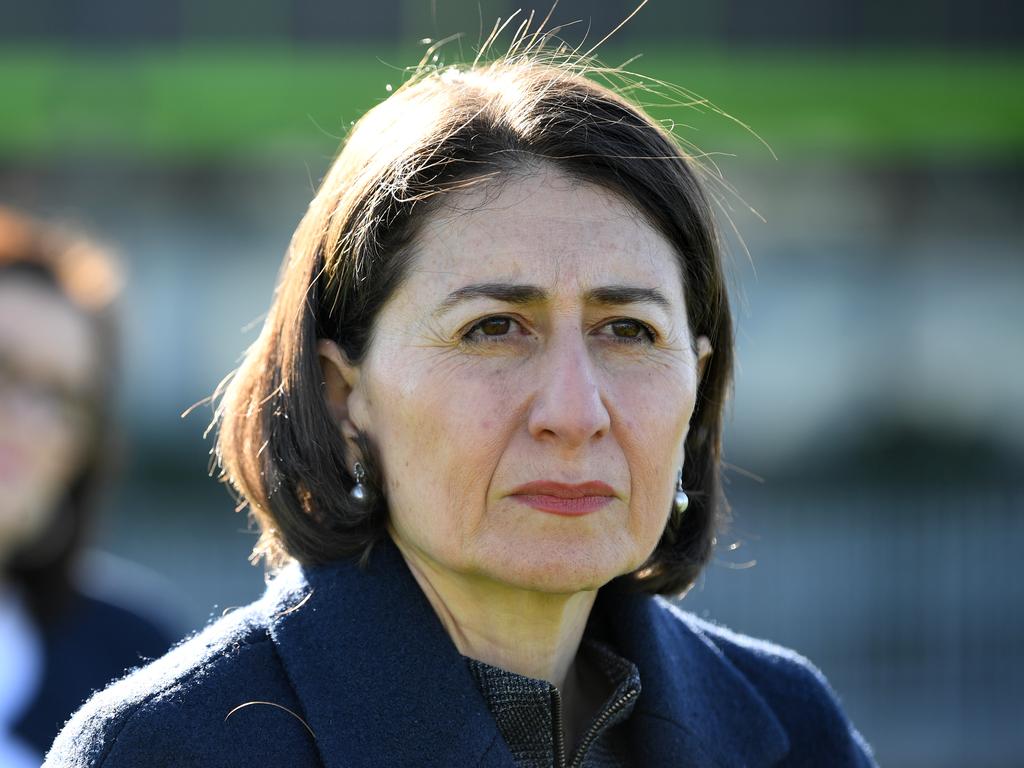
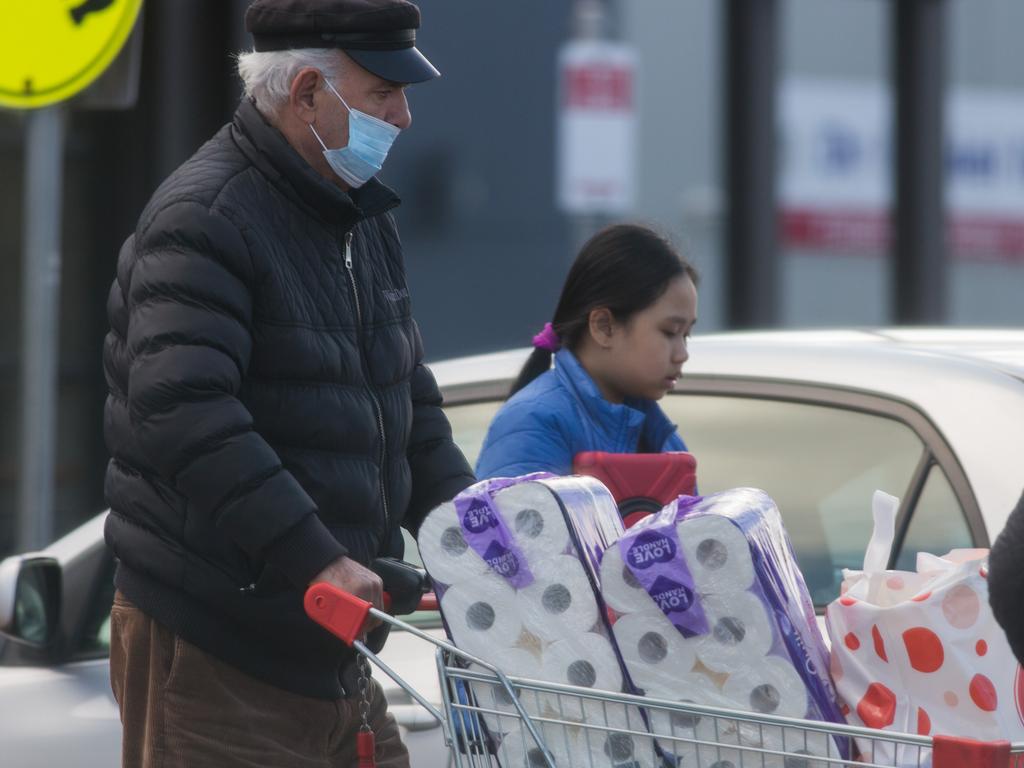



To join the conversation, please log in. Don't have an account? Register
Join the conversation, you are commenting as Logout